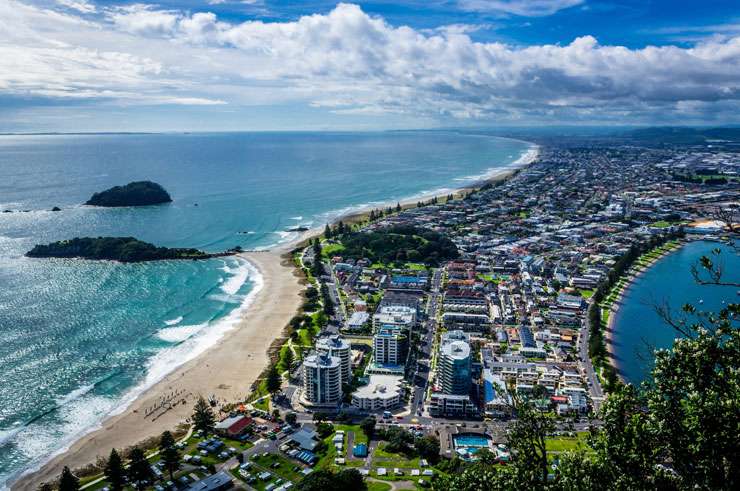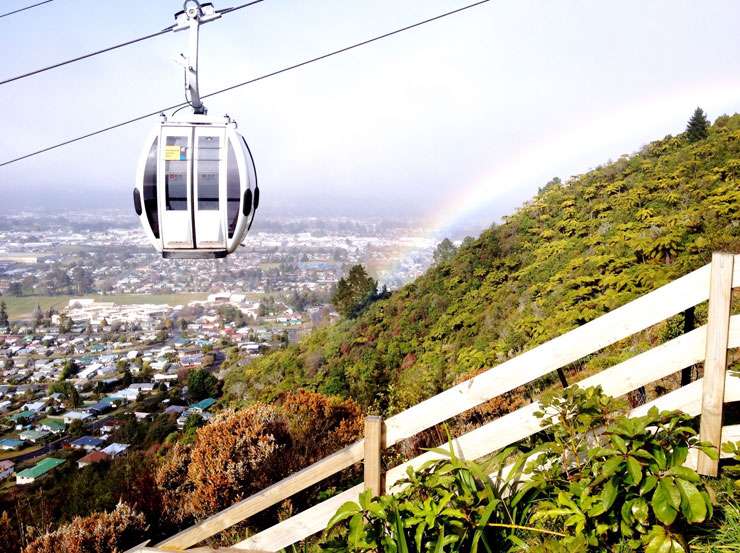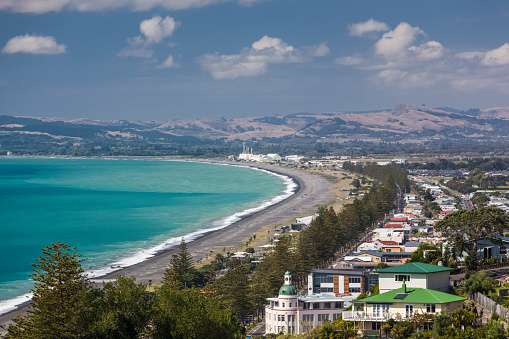OneRoof polled the country’s real estate leaders and agents on the challenges the industry faced during and after the lockdown and asked them what they thought the long-term impact of Covid-19 would be. Their answers shed light on what was a unprecedented time for real estate and provide buyers and sellers an idea of where the housing market might head in spring and summer.
Many agents missed the face-to-face contact with clients and colleagues through April and much of May, but took advantage of the time to learn new technology tricks. When lockdown lifted they were back at it like never before.
While predicting the future is always uncertain, one branch head says there could be job losses ahead. “I’ve seen it during the GFC, that we will most likely lose a few thousand sales people that have been carried by the recent market conditions,” says Ritesh Verma, branch manager at Property Brokers in Whanganui.
Start your property search
But agents that look after their database will survive and some will even flourish.
Verma believes the outlook for Whanganui’s housing market — one of the hottest before Covid-19 struck — is positive; the town’s economy is not reliant on tourist spending, he says, and stock levels and buying activity are strong, with houses fetching solid prices.
Like many agents who responded to OneRoof’s questions, he worries about doom-laden predictions having a negative effect on the market.
“I fear if everyone watches the news and gets on the bandwagon about a market crash we will talk ourselves into one,” he says.
“We are ever the optimist, of course, but naive we are not, so our agents are working harder and smarter, saving more, and generally knuckling down.”
Crystal ball gazing
John Bartley, managing director of Bayleys Whanganui, says his team also took the opportunity lockdown provided to regroup, learn and plan.
Included in that was a promotion offering free advertising and financial support for homeowners needing to sell their property. “We knew there were some homeowners in our community doing it tough and the promotion provided some practical help and breathing space,” Bartley says.
He too is upbeat about the market: “I think Whanganui real estate is in a good place with lots of new listings and interest. With the added benefit of low interest rates, things are looking buoyant. We continue to get enquiries from the larger centres and I believe that more than ever, regional New Zealand is becoming a more attractive place to live.”

Property values in Tauranga's housing market are now above where they on March 25. Photo / Getty Images
While uncertainty around jobs, the election and the pandemic could put downward pressure on house prices, Harcourts agent Sue Ellis and Philippa Ivory, general manager of Ray White Whanganui, believe the fundamentals of the town’s property market are strong.
Whanganui, Ellis says, offers buyers quality lifestyle and good-value homes, and what happens in the future is just crystal ball gazing. Ivory adds: “Whanganui has a strong manufacturing and rural economic base, great weather and several significant sporting and cultural events planned.
“With the influx of government investment into ‘shovel-ready’ projects, job prospects look okay, and so does the housing market.”
Confidence and concerns
Heath Young, chief operating officer of Realty Services which covers Bayleys and Eves in the Waikato, Bay of Plenty and Taranaki, says the lockdown was challenging because real estate is a contact sport.
“Our business is built on forming great relationships with our vendors, buyers, landlords and tenants, so not being able to host viewings, do face-to-face meetings or operate normally was challenging,” he says.
Young expects the pandemic will have a lasting impact on markets or asset classes that are reliant on tourism, or migration. Transacting, he says, relies on confidence and demand, and supply factors such as regional migration, job security and bank lending conditions.
“Job security is the big unknown in terms of impact but as with previous financial shocks to the market, which are the only comparisons available to an event such as a global pandemic, the market does in time recover. It’s more a question of the length of time this recovery will take.”

Rotorua's tourist economy has taken a hit from Covid-19. Photo / Getty Images
Letterbox Realty agent Tracy Beaufill says the Rotorua market remains as hot now as it was before the pandemic struck. She believes the lockdown has seen the industry embrace innovative practices that have improved the buying and selling process.
“Contracts don’t have to be signed face-to-face with agents, and [there is now] more online communication. There was no paper advertising during lockdown, however, people continued to look at property online,” she says.
Shona Duncan, principal of New Zealand Sotheby’s International Realty in Rotorua, says the market’s recovery was quicker than many expected, but while sale prices are up, sales volumes are down, although recent results are encouraging.
Simon Martin, managing director of Harcourts in Tauranga, agrees that the dearth of stock is a concern. “Heading into the Covid-19 lockdown listings were already at record lows compared to previous years and this is still the situation now,” he says.
But interest rates are at an all-time low, LVR restrictions have eased, and the large number of New Zealanders coming home will need somewhere to live. “The way New Zealand has dealt with the Covid situation must give confidence to the market,” he says.
Simon Tremain, managing director of Tremain Real Estate, says while the fall-out from Covid-19 is yet to be seen in Hawke’s Bay, any negative impact will be short-lived. “New Zealand has weathered the storm exceptionally well and providing people have jobs, our economy will continue to thrive,” he says.
Property will always remain the number one investment for New Zealanders, he says. “The regional spread of our population and the housing shortage in both ownership, rental and emergency housing is real. These facts add up to one thing — further demand and growth in the housing market.”
Rhythm disrupted
Joe Snee, regional manager for Property Brokers in Hawke’s Bay and Gisborne, says the speed at which the lockdown came into effect presented challenges. The situation was difficult to navigate, he says, and throwing in the legislative changes to the rental market meant information was constantly changing.
“Yes, it impacted the business rhythm but more importantly it challenged the mental resilience of our teams and it illustrated just how strong our people are.”
The impact of the crisis is uncertain, Snee says. “I field a lot of questions about the lasting impacts of Covid on the real estate market. In my opinion, with a global pandemic of this magnitude, it wouldn’t be right to think it will not have an impact on our local market.

The view over Napier CBD. Hawke's Bay saw strong sales post lockdown. Photo / Getty Images
“However, to what degree is another question, and I remain positive about the market. With record low cash rates, uncertainty in financial markets, and a number of people repatriating back to New Zealand I am confident the market will show some resilience.”
As for the coming months, the goal posts are changing and there’s an election around the corner. There is the potential for legislative change, tighter regulations and then, as always, the unknown of the local economic performance.
“These are all aspects that we will keep a close eye on moving forward, However, all we can do is control what we can control as a company, and to us that is continuing to provide high levels of service to our clients and ensure we do the best by them.”
In Northland, agents report challenges around supply and demand. Tony Grindle, general manager for Bayleys Northland, says the market has lots of qualified, cashed-up buyers competing for a dwindling supply of stock.
The lack of sales over April and May did have an impact but, “We are learning to not stress about things outside of our control — better to take advantage of the opportunities presented,” Grindle says.
He says the real impact on real estate in the region may be felt around increased demand for protein and the supply of New Zealand-grown agri product to a market offshore unable to meet their own domestic demand.

Kerikeri in the Far North. Northland was one of few regions to see value declines since March 25. Photo / Getty Images
“Northland is well positioned to leverage our agricultural and horticultural industries. In residential, I don’t consider the Covid hangover to be significant. Central government had effectively already stopped offshore buyers and returning Kiwis may provide an additional buyer source.”
September the month to watch
Prolonged border closures and new community outbreaks are concerns but, “Once again, if we accept the mantra of only worrying about those things we can control, we don’t have any fears”, Grindle says.
There may be challenges around capital and adversity to risk, but Northland is in a strong position. “Pre-Covid, immigration was increasing faster than any other province, employment was at the highest level and we were benefiting from our position on Auckland’s boundary.”
Paul Beazley, general manager of Eves Whangarei, says prices have remained at February and March levels, and while sales numbers are down, that is to be expected. “We may see the impact on price once mortgage deferments are finished, subsidies are at an end and the effect of unemployment levels come home to roost, which is likely to be felt in the spring,” he says.
“There may be some forced sales, but I don’t think we’ll see too many stressed sales.”
Martin Dear, manager of Barfoot & Thompson Whangarei, says business has returned to pre-Covid levels, with first-home buyers, investors and expats showing interest in the region.
“There have been predictions of lower prices but we have not seen evidence of a market slowdown. Northland is a region of choice and the lockdown has allowed people to refocus on their future. I think we will continue to see demand and development and this will drive growth in the market.”
Mike Beazley, business owner of Harcourts Whangarei, says the end of the wage subsidy and mortgage deferral schemes “could put real pressure on some owners as to whether they can continue with their mortgages”.
“Presently the demand for good property is exceeding the supply. However, it would not be unreasonable to say there could be an easing of prices in the coming months.”
He adds: “The market has not dropped to the depths many feared and the recovery is faster than we saw after the GFC in 2008. The data to date indicates that it is much better than many expected and while there is real reason for optimism, September will be the month to watch.”









